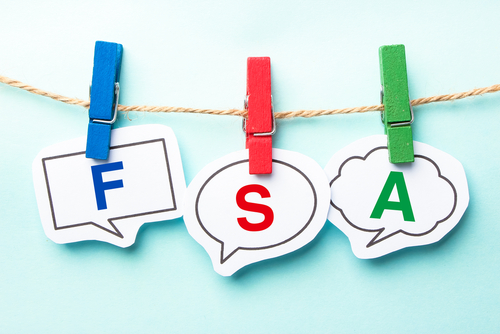Spring is right around the corner, and so is an important deadline for more than 30 million Americans who are enrolled in a flexible spending account (FSA). March 15 is the most common deadline for the 37% of FSA users who have an optional grace period — a 2.5-month extension for spending down funds from the prior FSA year — which means this could be the last chance for many employees to spend those funds to avoid forfeiting contributions. Benefits professionals play an important role in educating employees about this important deadline and teaching them how to save on products and services that they are likely already buying with out-of-pocket funds.
If your organization offers an FSA grace period, take time to help employees protect their health and avoid becoming one of the nearly 40% of FSA users who forfeit funds each year. If you’re short on time and communications support to accomplish this, consider these six things that all employees should know about the FSA grace period and the surprising ways they can spend their tax-free dollars.
- There are thousands of products that are FSA eligible: FSAs cover a broad array of clinical services and visits, as well as a plethora of healthcare products – many of which employees are likely already buying. In fact, it’s been estimated that the average household spends $1,600 a year on healthcare items that could be purchased with tax-free FSA funds. To help employees find the items that best meet their needs, direct them to a comprehensive, searchable eligibility list.
- An FSA can help employees prepare their skin for spring: With warmer weather right around the corner, your employees are likely getting ready to spend more time outside, which means they’ll need sun protection and skin care. Popular sunscreens, acne solutions and other skincare products are all FSA eligible.
- Menstrual care products are FSA eligible: The average menstruating person will use approximately 17,000 tampons or pads in their lifetime, but many of these individuals do not realize that menstrual care products such as tampons, pads, menstrual cups, and period underwear are now eligible for FSA spending. You can help employees save on these necessities.
- High-tech health is within reach with an FSA: Some of the most sought after high-tech health devices are FSA eligible. Using tax-free funds to purchase products that monitor chronic conditions, everyday wellness, and more is smart for employees’ wallets and their health. If you prefer high-tech health without the gadgets, virtual care and telemedicine services like online mental health therapy and invisible braces are also eligible.
- An FSA can help protect your bundle of joy: Being a parent is incredibly rewarding, but it’s also expensive. FSAs can alleviate some of the financial stress that comes with bringing a newborn into the world. Make sure your employees know they can use their tax-free FSA funds to purchase products they will use every day. In addition, over the counter baby care products are also eligible.
- Over-the-counter medications are covered: Keeping your medicine cabinet stocked with over-the-counter pain relief products, cold and allergy medications, and first-aid items can be spendy. When employees use FSA funds for these items, they can save money while preparing for life’s little accidents, aches and pains, and seasonal health needs.
Don’t let employees miss out on this opportunity to use FSA funds before the grace period deadline. Not only will you help them avoid a potential forfeiture, but you could help them save up to 30%, based on their tax bracket, by using their tax-free FSA funds for their everyday health.
Susan Elliott-Bocassi is senior vice president of operations for Health-E Commerce, parent brand to FSA Store, HSA Store, WellDeservedHealth, and Caring Mill.

